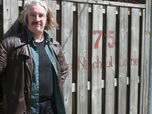the twin paradox
he?s younger, for space swine sojourn.
Would that theory account for stress,
addling by uncertainty? newly
eldest, he?s just rested at home,
pottered in his garden, no? or
he chose to stay and stand with real,
watering dry spots of home and work
life. rather than flake out and join
the cirrus. the responsible age,
earthbound, in opportunity costs,
declining a loose-flit glory to
heed more immediate worries.
an absence is a glib excuse
the ragweeds and regrets don?t get. (Mammals of Hoarfrost)
It seems Ottawa poet Pearl Pirie has been on a roll over the past couple of years, starting with her first trade book, been shed bore (Chaudiere Books, 2010). This past March, her poetry manuscript ?Thirsts? won the Robert Kroetsch Award for Innovative Poetry and was published this past fall as Thirsts (Snare Books, 2011). Around the same time, her chapbook Mammals of Hoarfrost (Corrupt Press, 2011) appeared, which she and her husband Brian flew to Paris, France to launch. Pirie has also recently branched out into publishing, editing and producing the limited-edition chapbook anthology, In Air/Air Out: 21 Poets for the Guatemala Stove Project just in time for the autumn 2011 edition of the ottawa small press book fair, and the small anthology is already out of its original print run (currently working on a second), even before the launches scheduled for just in the new year. She was also the first in a series of the School of Photographic Arts: Ottawa?s ?Call and Response? series, pairing a poet up with one of the school?s shows, pairing Pirie up with Leslie Hossack?s photography series, ?Cities of Stone, People of Dust,? which opened at the beginning of August, 2011. Available in its entirety in the gallery space, a selection of Pirie?s contribution/response, with an introduction by the author, is available on the school?s website. Subsequent poetic responses have or will be posted by Amanda Earl, Monty Reid, Sandra Ridley and Christine McNair.
Part of the appeal of Pirie?s writing is its fearlessness and endless exploration of subject, language and cadence. Her poems are always questioning, but rarely uncertain.
Q: How does your new book and/or chapbook feel different?
A: Generally the process feels different because I'm getting the sense of poems as chemicals interacting. Order of revelation of poems in a set change the taste by what they are next two, amplify, counter, colour or cancel out, make for effective underscoring or for redundancy, in the same way that line order in poems affect the overall effect. I'm more conscious of this. If a poem has gotten to the stage of being let out on a day pass, it presumably is good enough to do no grievous harm alone but who it meets up with could change that. A poem may be good but not for a certain context. If it acts as an interpreter or bridge or context for others, it becomes differently useful as a thought-artifact for this new situation of collation. Hard to say what counts as new since a few or in parallel or close succession. It's like does being the elder brother when you're first out of identical twins really count for lording over the other as older?
Q: How do you feel different as a writer over the past, say, couple of years?
A: I'm more opinionated. And I'm more interested in what the impact of a poem is on the writer than in being wowed by virtuosity. I write a lot more that I see as useful to have written but not as useful to share in any forum. It's more a matter of self-dialogue to see what's going on in my processing than something to write-off as art. In issue 51 of Magma Poetry Magazine Maitreyabandhu has an article on "making poetry a spiritual practice." He talks about getting back into reading for delight, not cramming, skimming and scanning. He says "the faults of the poet will gradually become the faults of the poem." I'd accepted that some say poetry is self-expression, an outcome of what one filters as salient from the world and a responsibility for a kind of terraforming of what you want to become by what you omit and engage with and think critically about but his essay brought up another factor, this feedback loop. One cannot write about meaning from nihilism and one cannot write dadaist if one doesn't believe. One needs both binaries and all the grey matter in between to make sense and sensible choices in writing and life. He said, "For a poem to communicate profound thought, the poet needs to think deeply; for a poem to express deep emotion, the poet needs to feel deeply; for a poem to be beautiful the poet needs to experience beauty."
Q: Do you consider yourself an Ottawa writer, or simply a writer who lives in Ottawa? Does it even matter?
A: I don't call myself an Ottawa writer. I come from the countryside where I'm not really of there either being only third generation. Multinational suits my sensibility better. Maybe all writers are outsiders, between-siders. It's easier to get cheques if one has a fixed address tho.
Q: What are you currently working on?
A: I'm wrapping up a chapbook anthology from a Tree Masterclass with Barry Dempster. Hopefully we'll take that to print soon. And organizing readings for the In Air/Air Out: 21 Poets for the Guatemala Stove Project chapbook. Soon to pare away at a couple manuscripts to make something that is book-length, chapbook. And quit stalling and sent more submissions to magazines.
Q: How important is it for you to get your work out of your house, out of the city, out of the country?
A: Although I can write at any point any environment and something worth recording doesn't care where I am at the time, noise matters more than where I am in space, home or away. A sustained not moving quiet anywhere for three to five hours with no time marks to hit allows me to write. But that wasn't the question was it? How important is it to get out...etc. Essential. I go batty inside walls. I am most centered and restored when in a forest or near water, away from traffic and machines. For balance I need a regular dose of out of the buildings, out of the city. Out of the country helps as well to get myself unplugged from these illusionary necessities. To recognize how unnecessary one is by leaving is essential to be useful at all when present.
 |
Born in Ottawa, Canada?s glorious capital city, rob mclennan currently lives in Ottawa. The author of more than twenty trade books of poetry, fiction and non-fiction, his most recent titles are the poetry collections A (short) history of l. (BuschekBooks, 2011), grief notes: (BlazeVOX [books], 2011), Glengarry (Talonbooks, 2011), kate street (Moira, 2011) and 52 flowers (or, a perth edge) (Obvious Epiphanies, 2010), and a second novel, missing persons (2009). An editor and publisher, he runs above/ground press, Chaudiere Books (with Jennifer Mulligan), The Garneau Review (ottwater.com/garneaureview), seventeen seconds: a journal of poetry and poetics (ottawater.com/seventeenseconds) and the Ottawa poetry pdf annual ottawater (ottawater.com). He spent the 2007-8 academic year in Edmonton as writer-in-residence at the University of Alberta, and regularly posts reviews, essays, interviews and other notices at robmclennan.blogspot.com
Photo of rob mclennan by Christine McNair |


Post new comment